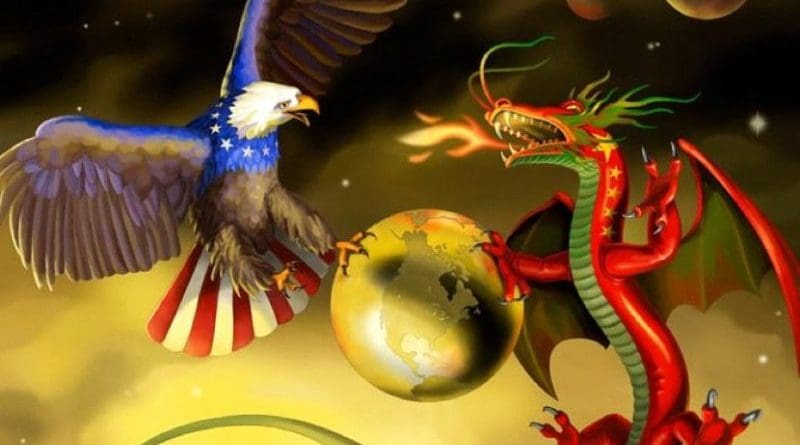Skirmish? China-US Row Is A Struggle For Global Supremacy – OpEd
By Arab News
By Cornelia Meyer*
There was an audible sigh of relief when US President Donald Trump suspended imposing tariff hikes on Beijing until he had met his Chinese counterpart, President Xi Jinping. Trump cited substantial progress in negotiations on trade in agricultural goods, intellectual property protection, technology and currency, meaning he could delay increasing tariffs from 10 percent to 25 percent on goods worth $200 billion.
Indications the deadline would be extended had been frequent, especially since Treasury Secretary Steve Mnuchin praised the progress made with Beijing two weeks ago.
Trump, meanwhile, performed a public volte-face in his stance on tech giant Huawei on Friday, saying the US should focus on developing its own state-of-the-art products instead of begrudging foreign companies theirs. The debate over the Chinese telecoms company had become politically toxic, culminating in the arrest of Huawei’s chief financial officer, Meng Wanzhou, who is also the daughter of its founder, in Canada in December after a US arrest warrant targeted her over allegations of patent theft by Huawei.
Progress in negotiations, though, is only part of the story for the delay. Nominations for the 2020 US presidential election are well underway, with a raft of Democratic candidates declaring their intentions to run. China, meanwhile, has suspended purchases of key US agricultural produce, particularly soya beans, putting economic pressure on Trump’s political heartland and prompting a federal subsidy program for farmers worth over $8 billion.
Retaliatory Chinese duties also cost the US economy $2.7 billion in November 2018 alone, according to the business coalition Tariffs Hurt the Heartland. This impact on Trump’s base is sure to have got the president’s attention with his prospective re-election campaign on the horizon.
China and the US need a resolution. The Chinese economy has slowed, and higher US tariffs would hit it hard. US supply chains, meanwhile, are tied to China, and no longer just in traditional manufacturing sectors as Apple’s profit warnings earlier this year showed.
Ripple effects were already being felt worldwide, as seen in the European car manufacturing sector, particularly among the big German firms like BMW which produce multiple models exclusively for China in the US. Unsurprisingly, then, stock markets and commodity prices rallied on the back of the news.
Trump still has a point, though, when he criticized China for its stance on the rights of foreign investors and how it provides general access to its markets, as well as forcing technology transfers and failing to prevent technology theft. He is also right to question government support for state-owned companies.
The issue now is whether the Xi-Trump Summit can make fundamental progress, or whether the compromise will be purely transactional.
Trump received support from several US business leaders, such as Goldman Sachs chief David Solomon, for addressing structural issues in the Chinese economy and the bilateral relationship. The president himself seems to prefer transactions to structural change, though, so we will have to wait until the end of March, when the summit will supposedly take place at Trump’s Mar-a-Lago resort.
This is a battle for the global economy. The veteran leader is fighting the ambitious upstart. China’s current industrial strategy focuses on high-tech fields, including in the pharmaceutical, automotive and aerospace industries, as well as in artificial intelligence. This pits them directly against the US in the quest for technological supremacy, with the prize at stake the chance to shape the future of the global economy for decades to come.
- Cornelia Meyer is a business consultant, macroeconomist and energy expert. Twitter: @MeyerResources

